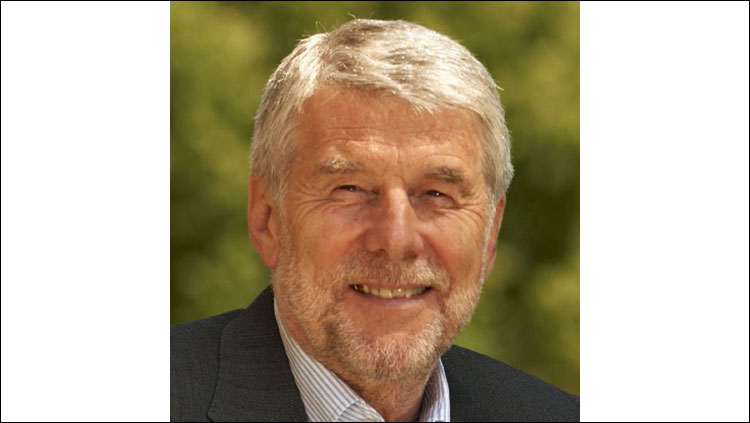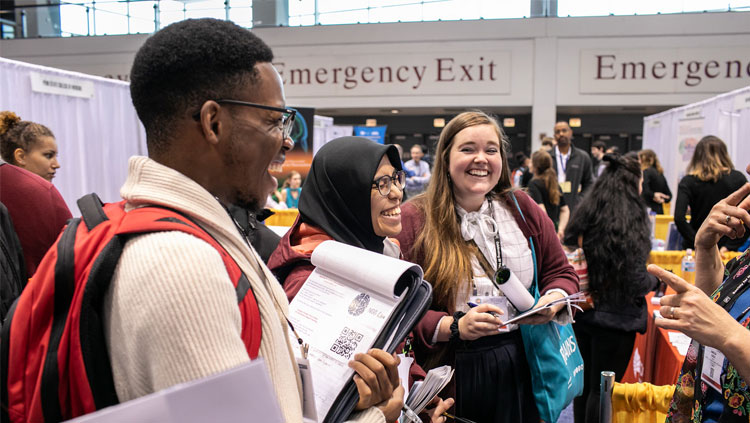Q&A: IBRO President on Global Access and Communication
Tracy Bale is the president of the International Brain Research Organization (IBRO), a global federation of neuroscience organizations and frequent SfN partner. In this Neuroscience Quarterly interview, Bale discusses the importance of global access to scientific resources, her priorities as IBRO president, and how neuroscience organizations like IBRO and SfN can better promote neuroscience in the public sphere.
Bale is a professor of pharmacology at the University of Maryland School of Medicine and director of the Center for Epigenetic Research in Child Health and Brain Development. She is recognized for her research on stress as a risk factor for neurodevelopmental disorders and neuropsychiatric disease. Bale previously served on SfN’s Public Education and Communication Committee and Program Committee.
Neuroscience Quarterly: As the incoming IBRO president, what are your priorities for your time in office and how do you plan to fulfill them?

Tracy Bale
Tracy Bale: My priorities are focused on ensuring IBRO remains relevant and value-added to the global neuroscience community. There are many financial and political hurdles facing numerous countries right now and affecting scientists’ and educators’ ability in those areas to do their work. It is my vision that IBRO be able to place resources and guide training and education to where it can be most impactful.
NQ: What do you see as the primary challenges facing neuroscience?
TB: Global access to the necessary resources is especially challenging. For many countries, when financial constraints take place, science research and education faces dramatic cuts in spending. For example, many of our partners in Latin American countries are especially impacted by political upheaval and unreliable funding structures. This adds uncertainty to already strained funding of research programs and training. IBRO’s focus right now is maintaining support and ensuring continuity to established neuroscience schools and courses as well as financial backing for numerous trainee and faculty travel awards.
NQ: How can organizations such as IBRO and SfN address those challenges?
TB: It is our obligation and privilege to utilize our financial resources to provide support for countries working to develop strong neuroscience programs and to provide necessary training to elevate the quality of neuroscience research and education around the globe.
NQ: In a recent interview, you emphasized that communication is integral to IBRO’s mission. How is IBRO addressing this need for communication?
“IBRO’s focus right now is maintaining support and ensuring continuity to established neuroscience schools and courses as well as financial backing for numerous trainee and faculty travel awards.”TB: One of my top goals for continuing the excellent breadth and depth of IBRO global neuroscience support is to increase our visibility and transparency. Often times, when an organization has been around as long as IBRO has, there is a need to shake up the structure and assess efficiency and function. The world has changed in the time since IBRO was formed. My goal is that as we take IBRO into the next decade, we can utilize newer platforms such as social media to reach out to our current partners as well as to develop new ones to gain more traction where we can have our greatest impact.
NQ: What are some of the best ways that organizations like IBRO and SfN can promote neuroscience in the public sphere?
TB: SfN does a fabulous job using social media and press conferences at the annual meeting to reach a wider and ever-younger audience, connecting the public and the funding agencies with neuroscience research. IBRO now has new staff working on communications, employing media such as Twitter to ensure awareness of IBRO activities and launching calls for applications to specific IBRO-funded Schools and Programs. IBRO has also been joining social media partnerships with SfN and the Federation of European Neuroscience Societies to gain visibility, and also with programs supporting developing countries, including Society of Neuroscientists of Africa and the Federation of Latin American and Caribbean Neuroscience Societies.






















